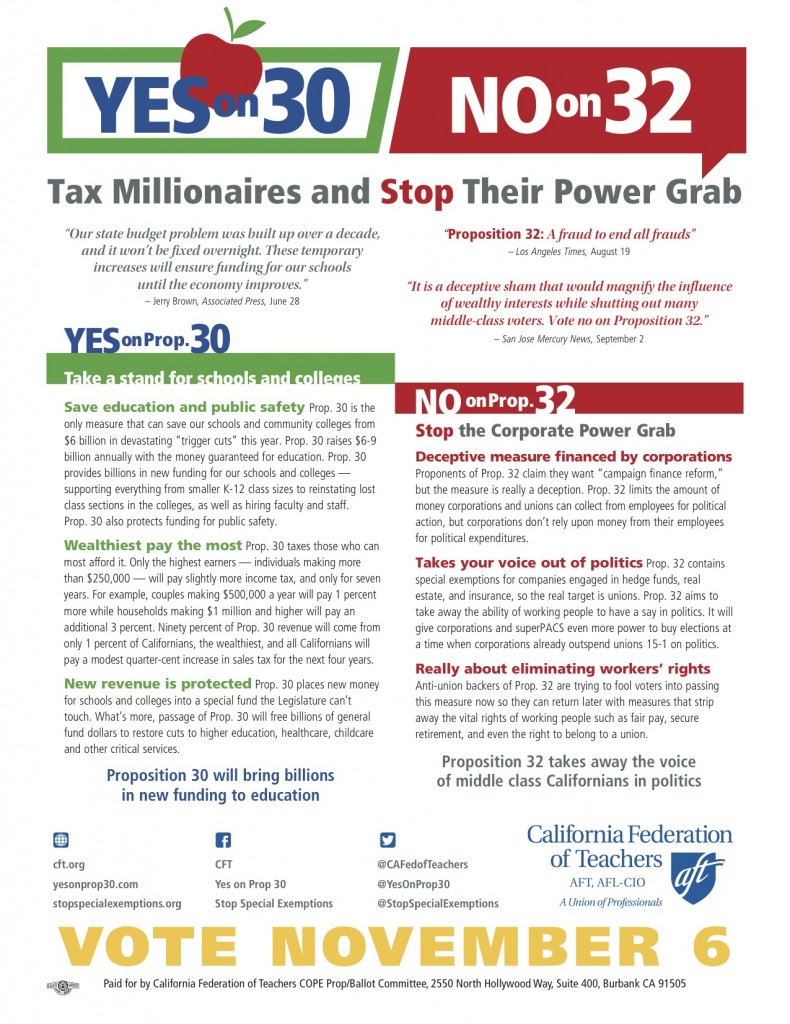January 12, 2013
by Admin 2
0 comments
Chris M. Kelty Chair, University Committee on Library and Scholarly Communications
January 10,2013
Dear Professor Kelty,
We write to you on behalf of the Berkeley Faculty Association to express our concern that the proposed policy to expand open access to research publications fails to address many of the issues faced by faculty whose articles, books, and other publications include embedded copyrighted material. This problem was originally brought to your attention in a September 2012 letter signed by Margaretta M. Lovell and a number of other professors. We agree with the concerns expressed in this letter and want to be sure that the problem is resolved in an appropriate way.
Certainly the ability to opt out of the open access policy still allows these articles to be published. However, this is less than an ideal solution, for as the previously mentioned letter said, it requires faculty “to negotiate as individuals between two sets of intransigent powerful parties with incompatible interests.” At a minimum, this proposed policy must be modified so that it automatically excludes articles with embedded copyright content from its strictures.
We support the university’s effort to tackle the absurd increases in cost of journals for libraries. We remain concerned, however, that, as currently written, this open-access policy lacks the scope and sophistication to solve the wide range of problems associated with the rise of for-profit publishers. These problems threaten to compromise not only public access to faculty research, but also the quality of research.
Among other concerns, we fear that the proposed policy may actually add to the pressures on the struggling non-profit academic publishers who still publish most of the research of faculty in the sciences, humanities and social sciences, providing the most prestigious and widely available outlets for their work. We also find nothing in this policy that allays our concerns about the shifting of publication costs to faculty. It is often incorrectly assumed that scientists and engineers can cover this cost from their large research grants, and this is certainly not the case in the humanities and many social sciences, where large research grants are very rare.
The September 2012 letter focuses on the special problems faced by faculty whose research involves studying art and material culture. What these faculty, and all faculty, need is access to experienced campus or university staff who can assist them in negotiating the use of embedded copyrighted and privately owned material. If specialized legal counsel is not currently employed by the University, then it should be engaged, just as all sorts of outside consultants are engaged by the University for the critical legal concerns of its mission. We understand that the university once had a program that provided assistance to faculty who needed help negotiating copyright with publishers several years ago, but that it collapsed when it became clear that the real problem was the lack of symmetry in power between the commercial publishers and individual academics, not the lack of expert advice to individual faculty members. We think this issue needs to be revisited from multiple disciplinary perspectives, including that of faculty whose research involves analyzing and interpreting cultural artifacts subject to the copyright claims of the owners of these materials, for whom negotiating these rights has become an increasingly time-consuming and costly burden.
In short, we do not think that the proposed open access policy will actually solve the problem it seems intended to solve, even with the modification we are urging. We would like to work with you to ensure that our faculty can continue to publish their research in high-quality venues and make their findings widely available at an affordable cost.
Equally importantly, please broaden this initiative to address the needs of faculty in all the humanities and social sciences, as well as all the sciences and all the professional schools. This is not a problem of specific academic fields, but of the principles of droit d’auteur and droit morale that are intrinsic to all intellectual and scholarly creativity.
We urge Academic Senate leaders to continue to work with leaders in peer universities and colleges to devise creative, joint strategies for dealing with the changes in the publishing world that threaten all of us who seek to conduct and publish academic research. Remember that it was mainly the UC library system, in concert with peer universities, that broke the choke-hold of Elsevier on monopolistic practices in science publishing. UC should not regard this problem as unique to itself.
Thank you for your consideration,
Sincerely,
Louise Fortmann and Christine Rosen Chair and Vice Chair, Berkeley Faculty Association
cc: Robert Powell, Chair, Academic Council Martha Kendall Winnacker, J.D., Executive Director, Universitywide Academic Senate

